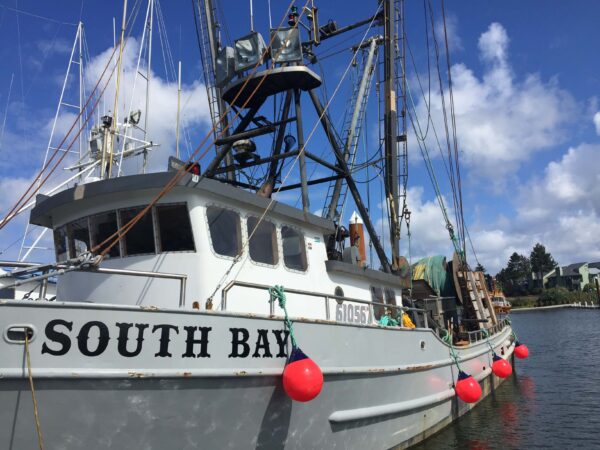Catch Shares 101
Some of the biggest land grabs aren’t happening on land at all – they’re happening on water. Catch Shares are a fisheries management system that treat fishing rights like stock on Wall Street. This system has enabled mega-corporations and equity firms to seize and monopolize fishing access. NAMA is part of a movement to help community-based fishermen take back control of fisheries.
Share this Post

The Problem
Since the late 1980s, it’s been open season on fishing rights.
Under the Catch Share system, the total amount of a fish species that can be caught in a fishery is divided into parts called quota. The government typically awards quota to fishermen based on how much fish they caught in the past. Fishermen who historically caught the most get the highest percentage of fish quota.
These quotas are essentially private property – they can be traded, bought, and sold on the open market. Over time, some fishermen have rented or sold their quota to multinational seafood companies and private equity firms. Now, large businesses that aren’t based in the community are taking the lion’s share of profit away from family fishermen.
So…what could possibly go wrong?
Imagine thousands of mom-and-pop stores being put out of business by big box stores like Walmart…on the ocean. This system of privatizing fishing rights has led to the shutdown of diverse fishing fleets all over the United States and in several other nations. So while in the past, hundreds of small- and medium-sized boats may have operated in a fishery, today that fishery might just have a dozen fish empires.
Through Catch Shares, one firm can own the vast majority of fish quota. For instance, in New England, the largest quota owner is now Blue Harvest Fisheries, a subdivision of Bregal Investments. Bregal is a multibillion-dollar private equity firm with headquarters in the Netherlands. Meanwhile, fish stocks in New England continue to suffer.
In fisheries that use Catch Shares, most fishermen have been forced to exit the industry. The Center for Investigative Reporting has linked Catch Shares to the loss of thousands of fisheries jobs. The small percentage of fishermen that remain are barely making ends meet, forced to rent costly quota and equipment from their sea lords in a sharecropper-like system.
Despite these failures, today most fish in the U.S. are caught through Catch Shares. There’s a rather sinister reason for this.
An alliance of power brokers and profit-centric environmental groups has pushed Catch Shares. Some have funded scientific studies promoting the system's alleged benefits. For instance, the Walton Foundation spent $20 million in 2012 to promote Catch Shares. And Charles Koch and the Reason Foundations aligned with Environmental Defense Fund (EDF) and others in a heavily-funded campaign to consolidate the fishing industry.

The Solution
Catch Shares are a top-down approach born from economists who never set foot on a boat.
NAMA has opposed this problematic system from the beginning. However, rather than throwing the entire system out the window, we are hearing from our fishing community leaders that we need to try to fix it first.
Our Catch Share Reform Coalition is actively advocating for policies that center the priorities of community-based fishermen and protect their access to fisheries.
The vision is to move fisheries management toward a grassroots, bottom-up approach that comes from real collaboration between fishermen, scientists, fisheries managers, and the public. Small- and medium-scale community-based fishermen must be a leading voice at the decision-making table.
In addition, Congress must immediately freeze any future Catch Share programs.
Existing programs must also immediately put in safeguards to prevent Catch Shares from further crushing community-based fishermen and worsening the ecological destruction we’re seeing nationally and beyond. Safeguards should include limits on quota and a guarantee that actual fishermen -- not billionaire private equity investors – control fish quota.
We know Catch Share policy aims to consolidate, privatize, and corporatize fisheries access on a national and international level. In some cases, communities have fought hard to win safeguard protections. But that’s becoming the exception to the rule. Meanwhile, our alliance is working on many fronts to resist corporate domination in fisheries and the larger seafood system, including seafood markets, processing plants, and distributors, as well as in industrial-level fish farming.
NAMA helped develop a business model called Community-Supported Fisheries (CSF) to empower local fishermen in getting more for their catch while increasing local and regional access to seafood. In a CSF, the fishermen live and work in the communities where they catch fish and are usually the owner-operators of their vessels. Since they depend on abundant fish stocks for their livelihood, they are fully committed to the health of their local marine ecosystem.
